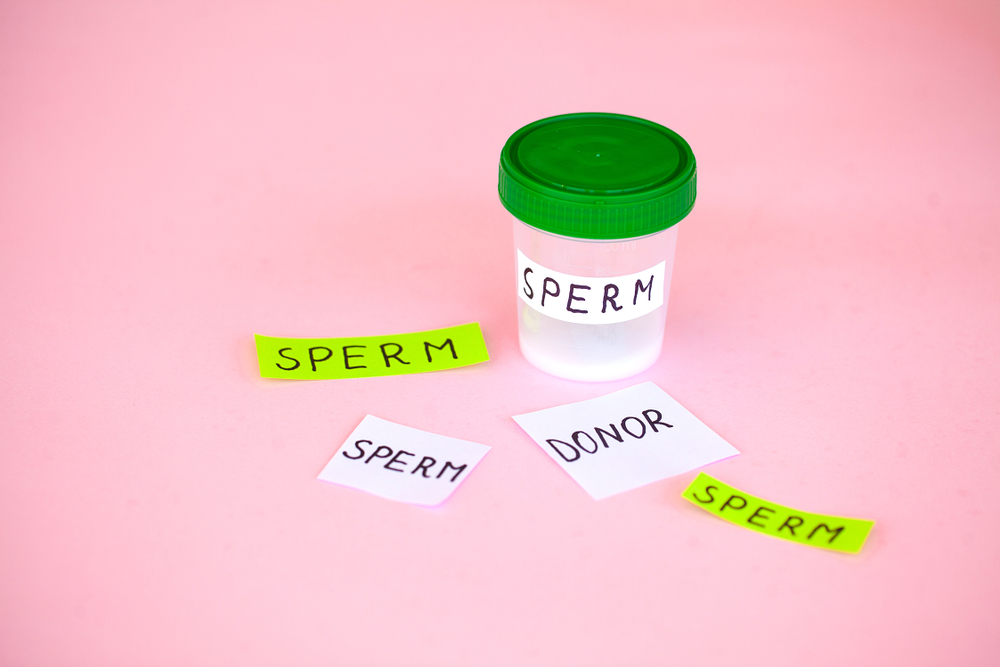There is hope for couples with a severe abnormality in sperms or eggs in the form of donated sperms and eggs. The centre has a donor semen bank where samples matched with blood group, height, skin colour, eye colour, etc. are available. These samples are procured from government-authorized semen banks where donors have been screened for thalassemia as well as sexually transmitted infections. These samples are then quarantined for six months & dispatched for use only after running a repeat screen for infections.
Donor eggs are also made available from healthy young women matched for blood group and physical appearance as far as possible. These women are similarly screened for thalassemia, sexually transmitted infections, diabetes, hypothyroidism, etc. They can also be put through advanced tests for carrier screening for genetic diseases on request.
Process of Egg and Sperm Donation
Donated sperm: The centre obtains semen samples from a government-certified ART bank as per rules laid down by the ART law 2021. The donor is selected by matching with the recipient’s blood group, height, skin colour, eye colour etc. The donor is screened for beta-thalassemia carrier state as well as for infections including HIV, syphilis, hepatitis B, and hepatitis C. The samples have been quarantined for 6 months, and the donors are rescreened for infection before they are released to various infertility centers for use.
Donor eggs: Healthy egg donors are procured through ART banks registered under the ART law 2021. Egg donors are similarly selected by matching blood group, height, skin color, eye color etc. They are also screened for thalassemia minor and various communicable diseases, including HIV, syphilis, hepatitis B, and hepatitis C. They are also screened for medical disorders such as diabetes, hypothyroidism, and kidney and liver disease.
Only woman who has healthy normal child/children of their own and no family history of genetic abnormalities are selected. If any couple wants a complete carrier screen for underlying recessive disorders, that can also be performed.
What are the Success Rates of Donated Sperms and Eggs?
Donated sperm can be used for IUI or IVF, depending upon the profile of the female partner. If she is healthy and young with good egg reserve and patent tubes, the chances of conception are as high as 25% per cycle of IUI-D (that is, IUI with donor sperms).
If however, the female partner has unhealthy/blocked tubes and/or has a poor ovarian reserve, the better choice is ICSI with donor sperms. Success rates are usually very good with these procedures but once again depend on the age of the female partner, her ovarian reserve, and the health of her uterus. Usually, they exceed 50 to 60% put embryo transfer.
Donor eggs- success rates with donor eggs also are very good, usually exceeding 50 to 60% per embryo transfer.
Who Should Take the Option of Donor Eggs/Sperm?
Donor sperms: If the man has azoospermia and tests indicate testicular failure or the presence of genetic diseases which can be passed onto the offspring, the option of donor sperms should be used.
Also, ICSI with testicular sperms (PESA/TESA/mTESE) is quite expensive, and couples who cannot afford these treatments may opt for taking donor sperms.
Donor eggs: Women who are in their late 30s or 40s usually do not have enough healthy eggs to be able to conceive even by IVF-ICSI. Either the egg reserve may be too low, and/or the egg quality is also poor. These women have very good chances of conceiving if they adopt eggs from a healthy younger woman.
Also, women who are carriers of genetic diseases may opt for IVF with donor eggs if they do not want to take the option of PGT (Preconception Genetic Testing).



